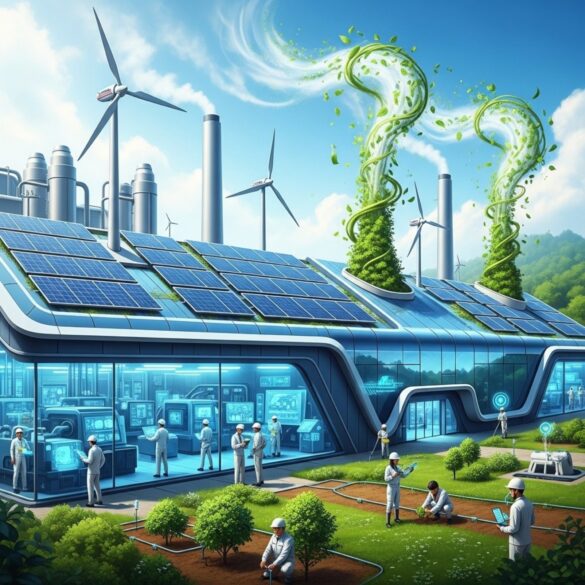A new wave of greener factories is transforming the way Bangladesh grows its industries, showing that progress and environmental care can work hand in hand. The Ministry of Labour and Employment has honoured 30 companies with the Green Factory Award 2025, celebrating their achievements in eco-friendly operations, worker safety, and resource efficiency. Winners came from diverse sectors such as textiles, leather, pharmaceuticals, electronics, food processing, steel, and ship-breaking, demonstrating that sustainable practices can take root across the entire manufacturing landscape. Bangladesh now leads the world in the number of LEED-certified factories, a sign of the country’s dedication to sustainable industrialisation and its ability to meet international standards. Award-winning examples show how green thinking pays off in practice. A steel manufacturer described using modern, energy-efficient production lines that lower carbon emissions and reduce operating costs. An electronics producer highlighted the treatment and reuse of hundreds of millions of litres of wastewater each year, along with recycling thousands of tonnes of plastic and e-waste. In the apparel sector, one leading company shared its investment in rainwater harvesting systems, high-capacity effluent treatment plants, and waste-heat recovery systems that generate steam for production. These innovations not only protect the environment but also help build trust with global buyers who increasingly demand ethical sourcing. Business leaders at the event stressed that greener factories lead to lower utility bills, safer workplaces, and happier, more loyal employees. However, the path forward is not without challenges. The leather industry, for instance, has struggled to maintain export growth due to the absence of key environmental certifications, and experts warn that upgrading central effluent treatment plants for tanneries must be a priority. Industry voices also called for the government to offer more incentives, such as tax benefits or subsidies, to reward companies adopting sustainable practices rather than relying mainly on penalties for non-compliance. Green financing is available from banks, but many businesses believe it needs to be expanded and made easier to access. Environmental specialists cautioned that awards and certificates should mark the beginning of a journey, not its end. Continuous training, regular audits, and strict inspections are essential to ensure that improvements last and expand over time. As Bangladesh moves towards a stronger industrial future, the balance between growth and environmental stewardship will be crucial. By embracing cleaner technology, efficient resource use, and responsible management, the nation has the chance to become a global model for sustainable manufacturing, proving that economic success and ecological care can go together.
Bangladesh’s Green Factory Movement Sparks Sustainable Growth
38


